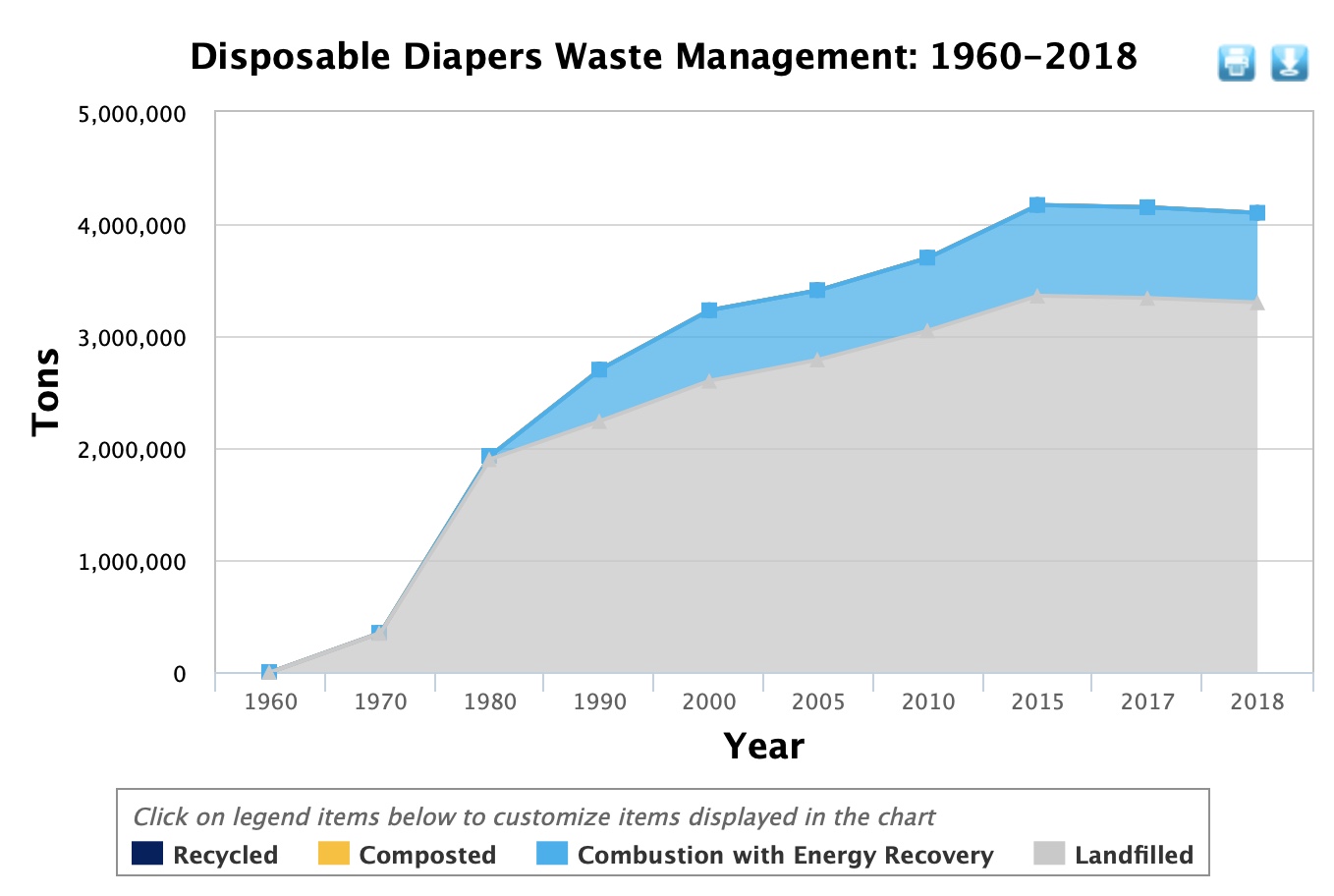It is catching up, but slowly with still quite a ways to go (at least from 2022 data) . . . the probem is population and demand can grow exponentially too - or if not they can have s-curves with short term exponential growth. Especially for, say, a developing economy that is growing car ownership/usage, or is transitioning from high infant mortality to low and fertility hasn’t dropped as it seems to after economic growth.
End result - fossil fuel use has also grown, a lot, over the last 30 years. Even despite the ramp up of renewables. Both in total energy source, and as a source of electricity.
What seems to work best from this data is decent sized economic recession like 2008 (a bit) and a pandemic (a bit more) - just need them to last a bit longer. /s /not-s
The other thing that is quite helpful is stuff like clean air regulation (for example LCPD and IED) - here is the UK electricity source graph as an example of coal switch off following that type of regulation.
But even there with direct regulation to shut the large coal plants (over about 30 year period), it has been gas that takes up the slack. But this is 100% politically driven regulation; nothing to do with the price of solar, or even windmills. It took the 70s recessions , smog choked cities, and a callous devil-posessed prime minister who literally set an army of violent thugs (with badges) on the coal miners to set up the conditions for that - otherwise we might still be stuck with coal a bit like Australia seems to struggle with. It helps that we can’t do open cast mining here though so coal was economically redundant anyway.
Real question: Most of things listed are consumer level changes only right? Isn’t the large majority of global warming being caused by industry emissions?
Large scale solar is also taking off.
Large scale solar farms have been a thing for decades. Large scale solar adoption is like wrestling with a hydra. The heads are Russia, China, and the middle east. Go nuclear, be the sun.
What exactly does nuclear change about Russia, China and the middle east? That’s a massive non-sequitur
Besides, think of China what you will, they’ve been key in driving large scale cheap solar
Nuclear is the only energy that really solves our problems. Nothing to really be confused about there.
You’re taking solar for granted. You’re not asking the important questions. Like, what if they wont sell to us anymore, what’s the human cost of human life? Can you honestly openly hold solar as some separate high accomplishment against the genocides China and Russia are openly complicit it?
The same can be said for nuclear. Potentially even more so. 3 countries produce almost all of the world’s uranium. What if they stop selling? You can build a domestic solar panel industry if you want, you can’t magic a uranium deposit under your feet. Nuclear is slow, expensive and a national security risk. Renewables are none of these things. Stop shilling for the energy companies that want to keep their monopolies.
Silliness. Your counterpoints are valid, but mostly restate my last comment with somehow even less sense. Buying solar panels from China isn’t more a national security risk than uranium from Australia? I don’t think you really have a well though out point here.
I’ll restate my own here for posterity and leave you to it. Solar from China Russia bad. Nuclear from literally anyone else good. Nuclear is safer, cheaper, and more efficient in every way at scale.
Remember, solar is untenable, poorly adopted, and is actively being pumped in price. This is as cheap as it will ever be all things equal. Nuclear has had none of those luxuries. If you think the price drop of a untenable solution is impressive, wait until you see one that really works.
Nuclear is consistently among the most expensive ways to generate power, and only afloat due to massive government subsidies, especially when it comes to waste storage. Whereas solar and wind are only beaten (in some metrics) by natural gas when it comes to power per dollar, getting even cheaper at scale.
https://en.m.wikipedia.org/wiki/Cost_of_electricity_by_source
Your original point was that renewables are being blocked by China, Russia and the Middle East. I disagree on China, but that’s not the point. How will nuclear, with all strings attached, succeed there, whereas solar and wind won’t? Silliness.
Everybody in this post is a sustainability specialist.
I read that the production of solar is also counter productive. Don’t quote me on that cause I read it when I was like 10 maybe.
The materials needed for solar are very toxic, and hard to remove, we also need a lot of them. We get these from places like China and Russia cheap because they don’t mind their citizens dying so much as they make a profit. That cheapness is the cornerstone to every renewable project today. If we found ourselves in a position unable to trade with China/Russia, we would have to mine it in our own borders, poison our own land, water, and citizens. America could just return to it’s own petrol fields, but other countries would face serious challenges.
I’m not saying none of this is true, but at the very least most of this is misleading. We’re figuring out how to recycle old solar panels on an industrial scale: https://youtu.be/FCtEWveySsA
But progress is a bit slower than expected, mostly also because panels are a lot longer-lived than previously assumed (this is a good thing).
Yes, panels use rare minerals, but so does basically everything we consume and use nowadays. There’s two answers to that.
A) does it still make sense climate-wise to use these resources in solar panels? This is what Life Cycle Analyses are for. In general, throughout their life cycle, PV modules help prevent more CO2 emissions than their manufacturing process releases, i.e. they are a net gain (https://www.mdpi.com/1996-1073/13/1/252). This is similar to EV vehicles, which break even around 60k km driven depending on your electricity generation (if memory serves https://www.europarl.europa.eu/RegData/etudes/STUD/2023/733112/IPOL_STU(2023)733112_EN.pdf)
b) is there a way to manufacture PV panels less resource-intensive and maybe even without relying on (Chinese) rare earth minerals as much? Yes there is. https://www.ise.fraunhofer.de/content/dam/ise/de/documents/publications/studies/ISE-Sustainable-PV-Manufacturing-in-Europe.pdf and see also sources above for next-gen differences.
That being said, for now it’s still economically more attractive (usually) to implement Chinese panels because they’re flooding the market. Still, it’s a net gain as outlined.
Solar isn’t scalable, clean, or sustainable. The only real option is nuclear. Most of the benefits to solar come from countries involved in multiple genocides, territorial expansion, and diplomatic saber-rattling. It’s a neat toy for youtubers, but it’s no real solution.
The issue with nuclear is the extremely high initial cost, and it’s not as set and forget it as the propaganda wants you to think. In short, because of nuclear decay chains the power can’t be just ramped up and down willy nilly, some of the byproducts poison the chain reaction and power needs to be managed. Having nuclear as the bearer of the minimal load with solar/wind/battery power for the variable load is the way I think works the best, but I’m not an expert.
I’d be real curious if you can back those statements up with peer-reviewed sources.
For one thing, it’s not exactly like Uranium is mined in democratic nations with strong labor protections.
Also, “it’s a neat toy” they say, meanwhile Germany produces up to 15% of it’s total energy by solar: https://www.agora-energiewende.de/daten-tools/agorameter/chart/today/power_generation/01.10.2023/30.09.2024/monthly
my mind rapidly shifts from defeatism to optimism practically every week
Nuclear is the way to go. If we can’t manage that we never had a shot as an intelligent race to begin with.
Indoor farming isn’t scalable. At least not with the models that are being done now. They work for niche crops, but not staple carb sources like potatoes and grains. They can be profitable, but aren’t a catch all solution.
The ocean cleaning projects also don’t scale. We should be focused on keeping the trash from getting into it first by switching to recyclable and biodegradable packaging and forcing the fishing industry to switch back to hemp nets.
staple crops have too many subsidies to be a good source of comparison, and staple crops aren’t very healthy for people in general.
Staple crops aren’t just your cheap empty calories. Legumes, carrots, sweet potatoes, squash, soybeans, onions, and some very healthy grains are all staple crops. Even the humble potato is fine, though many preparations of it are unhealthy. Take this soup:
- Lentils
- Carrots
- Onions
- Celery
- Potatoes
- Beans
- Vegetable broth made from the odds and ends
- Herbs & spices
Subsidies keep the farms alive in the first place. It’s simply not profitable to grow anymore. We make so much it’s too cheap to sell. Therefore the volume required and the margins are so razor thin. It’s make a profit or be bough-out by a bigger company.
Regardless of the politics that modern staple crops are associated with, you still need calories. Why do you think rice was a second currency for a very long time in some parts of the world.
Also, the example of indoor farming that’s near me is absolutely running off of government money, at least for now. They got a grand to setup in an old warehouse in downtown, but also own some empty property in the neighborhood. This could be just them future proofing or it would be them looking to flip the property once the main site raises the property values.
And then there’s the MIT Food Computer, which promised a lot and delivered nothing. The smaller scale the production, the less efficient it is. If you want to feed the world’s population without a steep decline in that population, you’re going to need outdoor farming in addition to the indoor stuff.
Idk about your first point but The Ocean Cleanup, has been doing great work creating plastic filters for the worlds most polluting river. I understand not creating the waste in the first place would be most efficient but this organization is doing a good job cleaning up the mess.
All true, but categorically the problem is growing much faster than the solution. It probably always will be unless it’s stopped from the source.
I don’t think that scalable and profitable are goals of indoor farming. It’s done for self sustainability.
I was on a road trip this weekend, and we had to clean the windshield 5 times. So it looks like the bugs are making a comeback thanks to restrictions on Monsanto products.
kind of an ironic choice of template for the message
Disposable diaper use is going down, and a decreasing proportion is getting landfilled.

Building out more and more renewables doesn’t mean anything if emissions aren’t falling - and they aren’t. Since 2021, nearly 4 full years, the world has closed less than 1% of active coal power plants.
The buildout of renewables has arrived hand-in-hand with an increase in total energy usage. The energy mix has improved greatly in favor of renewables, tons of CO2 per KWh is way down, unfortunately we just use more KWh so total emissions are still rising.
Everything in the meme is a leading indicator for positive change, which is wonderful, but the actual change needs to materialize on a rather short timetable. Stories about happy first derivatives don’t count for much.
Didn’t Britian just close down it’s last coal plant? Also Colorado is switching away as well. I thought natural gas was replacing coal?
From your link it, for me, it seems like emissions are platooning, similar to a technological S curve. Even if China and India are growing exponentially, reduction in other countries are enough to slow down the process significantly (specially if you zoom in in the last 10 years).
It’s very hard to predict change, but I suspect the deprecation of solutions that emit lots of emissions is about to skyrocket.
Since 2021, nearly 4 full years, the world has closed less than 1% of active coal power plants.
Closing will come later, when alternatives are widely available. What renewable energy does currently - at least here - is forcing those plants temporarily out of the market, especially during summer months and windy weather. The plants will exist and stay ready in case of need for well over a decade, maybe even two - but they will start up ever more rarely.
Technically, the deal is: we don’t have seasonal energy storage. Short term storage is being built - enough to stabilize the grid for a cold windless hour, then a day, then a week… that’s about as far as one can go with batteries and pumped hydro.
To really get the goods one has to add seasonal storage or on-demand nuclear generation. The bad news is that technologies for seasonal storage aren’t fully mature yet, while nuclear is expensive and slow to build. There’s electrolysis and methanation, there’s iron reduction, there are flow batteries of various sorts, there’s seasonal thermal storage already (a quarter step in the right direction)…
…but getting the mixture right takes time. Instead of looking at the number of closed plants, one should look at the sum of emissions. To remain hopeful, the sum should stop growing very soon.
Instead of looking at the number of closed plants, one should look at the sum of emissions
That was in the link I posted. Emissions are Currently at record highs.
Slowing growth isn’t enough; we need significant, sustained, reductions in the very near future, and negative emissions and sequestering carbon in the medium term.
None of that is happening at a scale that would inspire optimism.
One technology that’s being developed that can help is high-voltage superconducting DC power, which can send power thousands of miles. So if it’s a sunless, windless day in the Northeast they can send power from the Midwest to stabilize the grid.
Also, I’m very bullish on Iron-Air batteries for long-term grid-level storage.
We might already have reached peak carbon emissions. There’s also the thing where renewables are so much cheaper that it’s in most countries best self interest to build renewables.
The thing the world is doing now is more energy but the cheapest one is electricity so more electricity. The duck curve is an energy storage opportunity that’s being taken advantage of more and more. Things are heading in the right direction but it’s not fast enough.
The next emissions on the chopping block are household heating and cement and low-med industrial heat with more advanced heat pumps or heat pumps set up in series.
I’ve decided to become cautiously optimistic recently the more I learn about how science is advancing the renewables despite governments sometimes being in the way.
This is what I’m banking on, things get bad but that would motivate us more and it would become easier and easier to address.
Having said that, I think degrowth is the correct way; the above is risky but better than doom and gloom.
I worry that climate defeatism has become a religion, and it will be difficult to separate it from policy discussion going forward.
Almost as if the people in charge of oil and coal and such want us to be fighting about this type of shit…
Things just shifted instantly from “nothing needs to be done” to “nothing can be done.”
The Climate Denier’s prayer:
The climate isn’t changing,
and even if it was,
It’s not humans that are causing it,
and even if we are,
It’s better for the economy if we ignore it,
and even if that’s not true,
There’s nothing we can do about it anyways.
climate defeatism has become a religion
Going outside to 90⁰ weather in October is a religion?
A few folks I know switched smoothly from “climate change is fake” to “maybe it’s real but there’s nothing we can do about it at this point. Might as well live it up.” Basically anything to avoid change at any level.
I think that’s the defeatism they’re talking about here, not people pointing out the issues.
A few folks I know switched
All of that is just cope, though. Speed running denialism to acceptance. The bottom line is that - individually - there’s nothing any one of us is going to do to stop Indonesia from building a new coal plant or end fracking in West Texas or stop whatever the fuck this is…

These are large scale socio-economic problems stemming from an industrial system that does not need to account for its waste byproducts. “Well, you should just believe that climate change is real but also believe its fixable” is the correct sentiment. But simple sentiment has no impact on policy.
I think that’s the defeatism they’re talking about here
I have spent my entire life hearing people in positions of authority talk about climate change and watching the institutions they lead ignore the impacts whenever a change in policy might detrimentally affect domestic economic growth rates.
That’s why my heart is filled with doomerism. Even when we know, and even when we (superficially) acknowledge we can change the policy, the folks at the controls… don’t do it.
No. Climate defeatism is.
If the sum total of “Say no to climate defeatism” is “Don’t feel bad during the latest in a series of historic heat waves”, then you’re not arguing against defeatism. You’re arguing for denialism.
Don’t feel bad during the latest in a series of historic heat waves
Good thing nobody actually said that, then.
Why perchance has the interest in a self-sustaining life skyrocketed you think? Could it be because people can barely afford food anymore?
Not just that, it’s a combination of factors. Sustainable thinking, independence, a connection to the world and self and much more.
Is it defeatist to face the facts that we have released more carbon in 2023 than any other year? Is it defeatist to realize not only are we polluting non-stop, we are also destroying the oceans, we are destroying ecosystems and we are destroying ourselves at a rate that we can’t control? That a majority of people are content living their lives this way if it means they don’t have to make the hard choice of having and using less? We’re already well past 1°C and are not going to slowdown it seems until its too late.
CO2 emissions of the world excluding China have declined. Chinas emissions did fall in Q2 of this year.
Seriously China has economic trouble, which slows down energy demand growth. The US has run the massive inflation reduction act, which seems to be working somewhat well and Europe was hit hard by the energy crisis reducing emissions in the EU through lower consumption and faster green roll out and Russia as its fossil fuel exports fall. On top of that green technologies like solar panels, wind trubines, electric vehicles, heat pumps and so forth become cheaper all the time. It is certainly possible that we can achieve peak emissions soon.
I think it won’t matter. We have enough heat in the pipeline to wipe the surface of the Earth. Here’s a crisis report from Richard Crim saying, in essense, we done fucked up
This is MY OPINION, not “science”.
YOU HAVE BEEN WARNED.
🤨
You forgot the first bit
Warning, it’s not “good news”. I think we fucked up so badly that quiet literally a “Dark Age” is coming. This is a rough “first pass” of how some new papers are coming together for me.
Followed by
Short Takes: The evidence accumulates that the “Climate Sensitivity” estimate in our models is BADLY off.
One of the things that stuck in my head was the finding that there was an apparent pattern of +8°C temperature increase for each doubling of atmospheric CO2 (2XCO2).
Very alarming if accurate.
Whoa, whoa, street-preacher.
No, it’s not defeatist to state facts. It’s what you do or say immediately after that makes the difference.
Now, we’re all feeling the same kinds of stress that would make any of us rattle on like that, and you must know you’re not alone or even in the minority with your concern. The majority of people - polls show - want to avoid or to blunt that fate we worry is coming. And with the world swinging a little conservative for a while, it’ll be even harder to make the changes now we had to make 20 years ago.
But trust in your fellow person instead of cursing them for indolents when you don’t know their situation. If you go off like this at people on the edge of moving from subsistence to again having the opportunity to join you at the protests, you may risk losing them as an ally.
Softly, softly.
I am cursing myself for being too weak to do the necessary, to give up on the unnecessary plastic junk, to give up on driving and all the industrial products that are slowly killing us in one way or another. If I can’t do it how can I preach doing what is necessary to others? I feel like a hypocrit, caught between a fossil fuel filled life of comfort and a future of hardship that I feel fully unprepared to even talk about, never mind living through
It’s like praising all the cabin cars getting repainted with eco-friendly paint while the train has already gone off the cliff and is plunging toward the ground.
Interest in solar panels has skyrocketed, and yet at least 50% of the world population won’t stop driving ICE cars to work every day any time soon. While the ocean surface temperatures are on an exponential trajectory.
A climate catastrophy with mass deaths is inevitable. I’d be preparing instead of sugar-coating.
And after a few billion humans die, we can deploy solar panels and start living sustainably.
Yes, this exactly! The polls about sustainable living mean nothing when the ice caps melt, when the wildlife has been reduced to basically nothing and when we are all struggling to breathe with no trees and no plankton to produce oxygen.
Maybe these are just the transition costs
At least partly. No one seems to take into account the carbon costs of manufacturing things like solar cells, stuff like that.
I approve of the overall message but indoor farming is kind of insane in the present day. It uses incredible amounts of energy and our scarce building materials to do something we can do much more easily outside.
Long term it might be important but I don’t think it makes sense until we solve the current energy crisis.
Using solar panels to power artificial lighting so you can vertically stack farms directly inside cities doesn’t make any sense from a sustainability perspective.
But greenhouses in the suburbs that are tied into the city’s thermal grid and seasonal thermal energy store is the future of agriculture IMO.
By enclosing fields in greenhouses you decrease the land, water, pesticide, and fertilizer requirements, while also eliminating fertilizer runoff and the possibility of soil depletion from tilling. By tying a greenhouse into a thermal grid the greenhouse can act as a solar thermal collector in the summer while maybe even condensing the water that evaporates through the plants for reuse. Then you can use that same heat to heat homes during the winter or extend the growing season in the greenhouse even further.
https://www.renewableenergymagazine.com/storage/world-s-largest-thermal-energy-storage-to-20240409
https://ag.umass.edu/greenhouse-floriculture/fact-sheets/heat-storage-for-greenhouses
https://earthobservatory.nasa.gov/images/152874/a-greenhouse-boom-in-china
https://earthobservatory.nasa.gov/images/150070/almerias-sea-of-greenhouses
https://www.washingtonpost.com/business/interactive/2022/netherlands-agriculture-technology/ (Yes I know they use artificial lighting in a lot of these, and yes I know a lot of the value of their agricultural exports comes from flowers, but the point is it’s another example of large scale greenhouse use. Also they do still produce quite a bit of food in a small area, in addition to the flowers.)
Oh I fully agree that greenhouses have a role to play in food production. But that’s not typically what’s meant by indoor farming. That’s a separate but related concept.
That said, you may be slightly overstating the benefits here. Greenhouses can actually be very vulnerable to pests and diseases due to the high humidity, year-round warmth, and lack of natural predators. In theory they’re isolated but in practice it’s very likely some organism you don’t want will sneak in somehow. Pollination can also be a challenge for crops that need that.
I think these challenges can be overcome but there’s a lot of work to be done on them still.
Initial upfront costs are heavy but you would be saving all of the transport and logistics costs for the lifetime of the facility. Aeroponics are also a lot less resource intense than growing in the dirt.
Not in energy requirements when the sun is free and electricity and lightbulbs are not.
Transporting food halfway across the world ain’t free either.
Absolutely. Doesn’t change my point. Just brings up a different one.
Has anyone broken down the difference in energy between artificially creating growing conditions in the middle of cities compared to just transporting the food from where it grows easily? Trains and ships which transport most food are incredibly energy efficient per ton transported
Trains can transport one ton of goods 470 miles on one gallon of fuel and ships can transport one ton of goods 600 miles on one gallon of fuel. If a urban farm can produce one ton of food it needs to consume less than a few gallons of fuel’s worth of energy in lighting and other city-specific infrastructure in order to come out ahead of growing food where it grows best
Especially for some crops, like leafy greens. Having a semi-sterile environment can also mean pesticide-free crops. (Or at least, that’s my understanding).
Way less water use and transport costs for a superior (fresher, pesticide-free) product.
It only makes sense for some crops, though. Ain’t nobody growing watermelons or carrots in urban vertical farms.
I think it’s outweighed by the possibilities of hydroponic farming to reduce overall land (and therefore fossil fuel) use for agriculture.
Do hydroponic plants have fewer nutrients compared to soil grown plants?
No worries for pesticides or water use, as well.

















